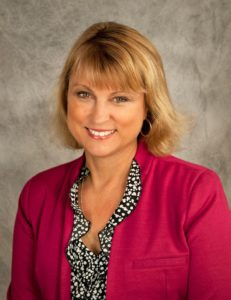Teens Talk, Leaders Listen: The Power of Youth Voice at Grand Rapids KidSpeak
The stories were often gripping, and always poignant. During last week’s KidSpeak in Grand Rapids, Jesus Garcia addressed community and government leaders via Zoom, and crushed it with a poetic telling of his experiences in the pandemic. Isolated like so many youth today, Jesus (pronounced hay-SOOS) described how he relied on a well-worn set of Mpows to remain plugged in. “My broken headphones let me listen, maybe for the first time, to our broken world . . . a world that has become hard to ignore,‘’ he said.
Jesus, one of 14 presenters from Grand Rapids middle and high schools, offered a raw insider’s view of what COVID-19 has reeked on Michigan youth. Relatives dead too soon; families upended by job losses; academic years disrupted; and failing grades. They spoke of soaring levels of depression and mental illness, and a time of high anxiety for young people just learning to navigate the world. They addressed the big troubles of the day, including oppressive racist practices, social injustice and police violence. But the young people who bravely raised their voices to identify growing fears and failures also did something equally remarkable. They talked about what they had learned this past year. They brought answers before their elders. They offered solutions for how to fix things for their peers, their families, the neighborhoods they love. And the people listened.
That’s how KidSpeak and FamilySpeak programs have been so powerful over the years: Real people thoughtfully sharing experiences that underscore where change is needed, with the authenticity and authority to float solutions that can alter outcomes for the next person with similar struggles. Jesus described what he learned, and how he’s changed since the pandemic began when he was 15. Today, at 17, he has discovered a desire to give back to his community, and has grown into a more empathetic person. Others brought similar messages of hope and growth.
Eleventh grader Alex Miranda, an organizer of the KidSpeak and president of the sponsoring group, the Grand Rapids Mayor’s Youth Council, came with sobering facts of growing mental health disorders around the country and at home, and pleaded that leaders address it. Citing insurance industry data, he said Grand Rapids leads the nation in depression, with 25 percent of its residents affected. He urged that mental health supports are particularly needed for young people experiencing the pandemic, a topic covered recently in an Education Week special report. Michigan has the third worst record in the nation for offering support to students where they spend most of their daytime hours – in school. The student-to-school counselor ratio is abysmal: one counselor for every 732 students. The recommended student-to-counselor ratio is 1:250. School counselors go beyond giving career and educational advice; they help detect a student’s mental health issues, resulting in students getting treated and diagnosed, he said.
“Counselors are the only source of confidential, supportive conversations for some youth, as income equality in the United States and in Grand Rapids is rampant,” Alex said. In addition to funding more school counselors – as proposed in House Bill 4156 (2021) – Alex called for real solutions that includes mental health first aid training courses for all school employees from bus drivers to principals, and urged the listening panel to study the new Michigan Suicide Prevention Commission report for combatting the state’s suicide statistics.
Real stories. Real solutions. That’s why KidSpeak continues to rock as a format for giving voice to kids with experiences that can teach us how to advocate for one another. To watch a replay of “KidSpeak 2021, Beyond the Virus,” access it on YouTube. Weigh in on Alex’s call for more school counselors by contacting your state lawmaker and offer your support for HB 4516 so that more kids get the help they need before it’s too late. With lawmakers debating the use of appropriating federal relief dollars, there are opportunities to improve mental health and counseling services, one Grand Rapids spokesman told the audience last week. And don’t forget the following names because these speakers are going places:
Anna Kalumbula, 10th grade, CA Frost Environmental Science Academy; Alaiya Harris, 8th grade, River City Scholars Charter Academy; Kennedy Williams, 9th grade, East Kentwood High School; Joshua Beckford, 6th grade, Gerald R. Ford Academic Center; Jesus Garcia, 11th grade, Grand Rapids Public Museum School; Alex Miranda, 11th grade, Grand River Preparatory High School; Jordan Orr, 12th grade, City High/Middle School; Taylor Pierce, 9th grade, City High/Middle School; Hanadi Suleiman, 11th grade, Union High School; Jacqueline Calderon, 11th grade, CA Frost Environmental Science Academy; Romy McKeller, 9th grade, City High/Middle School; Britney Garcia, 11th grade, City High/Middle School; Claudia Duimstra, 9th grade, City High/Middle School; and Sincere Williams, 8th grade, Godfrey Lee Middle School.
 Teri Banas is the Director of Communications, Media and Outreach for Michigan’s Children.
Teri Banas is the Director of Communications, Media and Outreach for Michigan’s Children.
